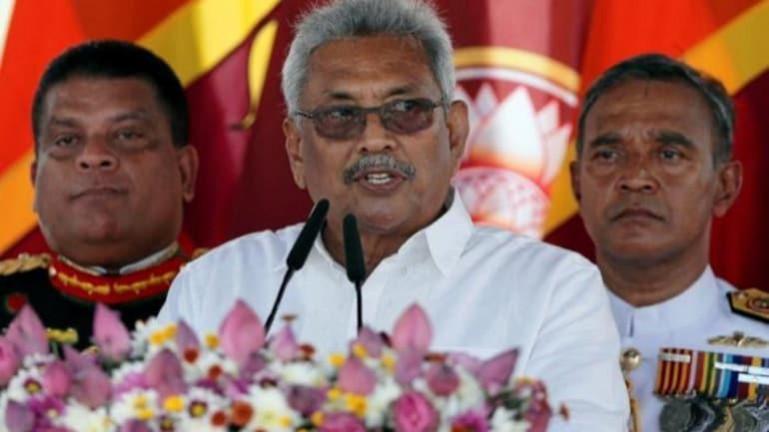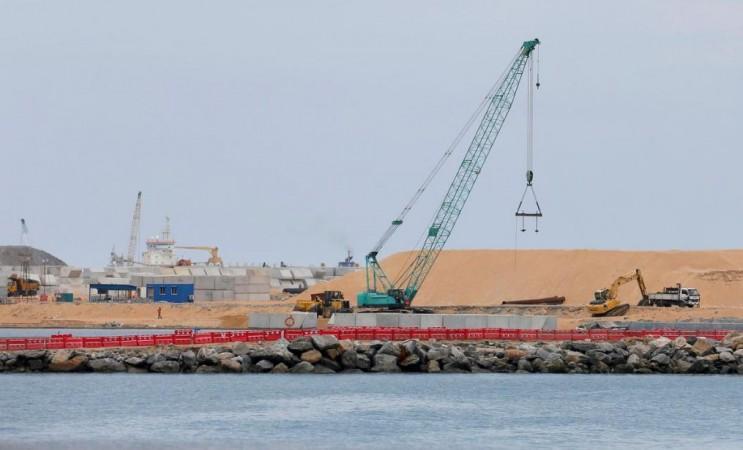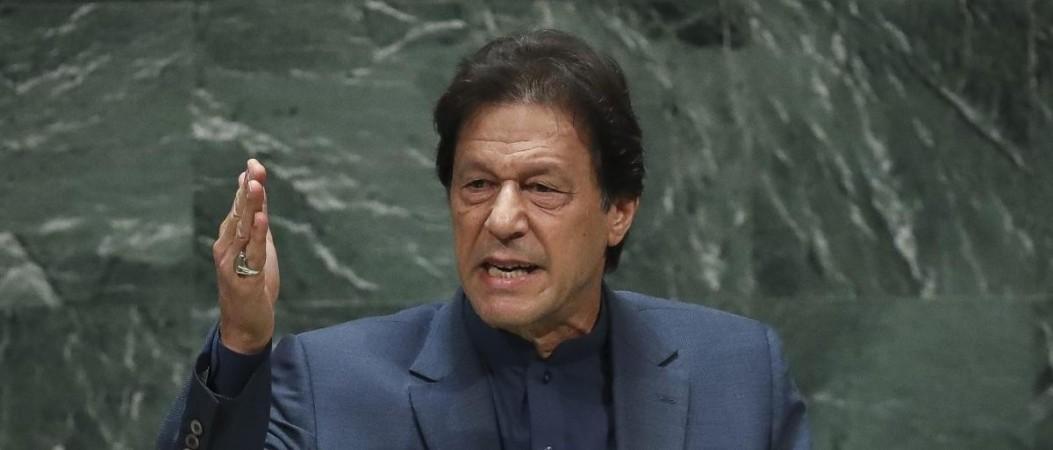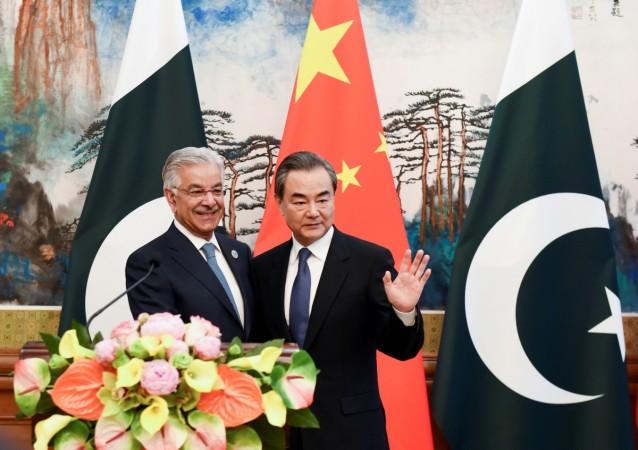Sri Lankan President Gotabaya Rajapaksa late on Tuesday night revoked the State of Emergency on his island nation with immediate effect. But the world knows that the state of urgency in the island nation is far from tiding over.
Following protests by thousands outside his residence, President Rajapaksa in a statement, urged, "all parties to work together for the sake of all the citizens and future generations." He further defended, that the, "the current crisis is a result of several economic factors and global developments."
Instead of elaborating on what went wrong or the actions being taken, Rajapaksa sought, "the support of all the people to overcome the economic challenge faced by the country." He also said, "As one of the leading democratic countries in Asia, solutions should be found to this within a democratic framework."

But solutions cannot be easily, or at least instantly, found for the vicious circle of economic mess that the country has plunged deep into. Ironic but on the other side of India, Pakistan too is in a situation no way different from Sri Lanka.
Politics and economics go hand-in-hand
Sri Lankan government's political instability has been directly caused by the economic mess. On the other hand, Pakistan's current constitutional crisis is likely to further adversely affect its economy, say experts.
Pakistan's ongoing constitutional crisis amid the dissolution of the National Assembly by Imran Khan, will further affect the fragile economy as it will impact stocks, bonds, commodities. Early election and quick resolution are the way forward as the new government needs to step in immediately to make the much needed urgent exonomic reforms.
On similar lines, the new cabinet taking over in Sri Lanka has a Herculean task ahead of reviving the economy. Recently, Rajapaksa in a damage control measure, said he was attempting to resolve the issue which was, "not created by me." On April 1, Prime Minister Mahinda Rajapaksa, similarly, passed the buck that the nation had any economic mismanagement. In an interview to CNN, he said, "It is wrong to say the government had mismanaged the economy. Instead, Covid-19 was one of the causes."
The vicious circle of plunging economy

Sri Lanka currently faces uncertainty of unprecedented level, with national consumer price inflation having almost tripled from 6.2 % in September to 17.5% in February, as per the statement by country's central bank. It is also staring at a debt of about $4 billion that needs to be repaid, including $1bn in national sovereign bond that matures in July. Data from the Central Bank of Sri Lanka also points out its depreciating currency. The US Dollar-Sri Lankan Rupee exchange rate was 199.55 per dollar a year ago. This fell further to 294.37 in the week ending April 1.
Cut to the other neighbour of India -- the situation in Pakistan is eerily similar if not exactly the same. Imports of many essential commodities are severely affected with the depreciation of currency besides rising inflation. In both cases, high inflation, sharp depreciation of the currency, dwindling foreign exchange are the immediate triggers of economic mess.
The consumer price index (CPI) in February was 12.2% as per the statistics bureau data. Surging food prices, including the energy prices have put outgoing PM Imran Khan under increasing pressure from the large middle-class support base he hitherto enjoyed.
The debt woes
Both Sri Lanka and Pakistan are in dire need of IMF bail-out. Co-incidentally, the debt woes of both are also mounting by the day. As per Asian Development Bank's recent report, Pakistan accumulated over $10 billion in new debt during the Covid-19 pandemic.
In contradiction to claims by the Imran Khan government, the report further states that Pakistani government borrowed over 90% of the total loans and the overall risk of debt distress for Pakistan is high.

On the other hand, as per a Bloomberg report, Sri Lanka's investors are also losing sleep over whether it will be able to keep its foreign debt obligations. The data compiled by the publication, shows Fidelity Investments' parent FMR LLC, Lord Abbett & Co. and T. Rowe Price Group are the among the largest holders of Sri Lanka's $12.6 bn in foreign debt.
The China factor
Despite all the for and against conspiracy theories on the Chinese debt trap and its debt diplomacy taking over the internet by storm, there is no denying how Sri Lanka and Pakistan have been among the biggest beneficiaries of loans from Chinese banks.
Chinese EXIM Bank has reportedly loaned $ 11 billion at an interest rate of 1.6% for infrastructure projects and another $15.5 billion at an interest rate of 5-6% for power projects under the China Pakistan Economic Corridor. All debts being denominated in USD actually increases the cost of hard currency for the borrowers. Given that the Pakistan Rupee has consistently depreciated it has been further increasing the debt burden.

Beijing, however, maintains that its loans comprise 10% of Sri Lanka's total external debt. Given the total debt of nearly $51 billion, this works out to be $5 billion. This, however, does not include loans given by China's state-owned enterprises. Loans given by the Chinese EXIM bank estimated at $4.8 billion, out of which only $1 billion carries a concessional interest rate of 2%, while the remainder carries a neck-breaking interest rate of 6%. Sri Lanka is said to have accrued foreign debt of $35 billion in 2021, in the wake of the pandemic.
It was only in 2018 that Sri Lanka had to hand over control of the Hambantota port to China for 99 years as part of a loan repayment settlement. Something similar though hasn't happened in Pakistan. Yet. Notably, the port was built using Chinese money and was, in fact, declared an unnecessary expense. It remains to be seen what's in store for both Sri Lanka and Pakistan amid the imminent economic crisis that had a common Chinese factor.















